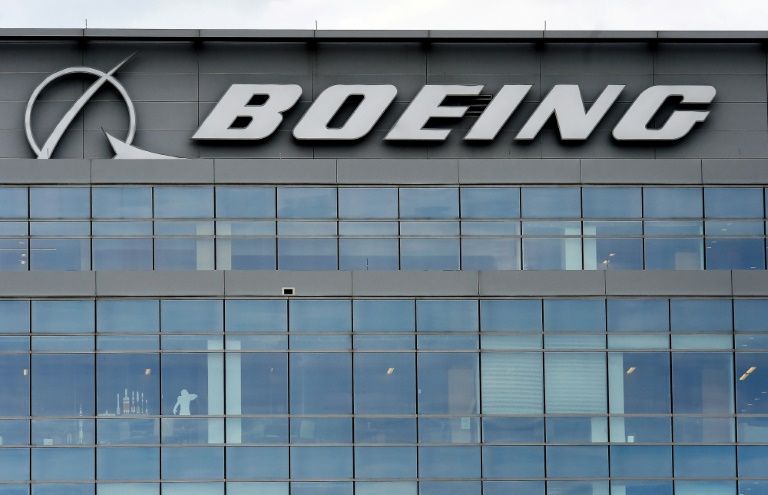US regulators clear Boeing 737 MAX to fly again
Washington (AFP) – US regulators on Wednesday cleared the Boeing 737 MAX to return to the skies, ending its 20-month grounding after two fatal crashes that plunged the company into crisis.
The Federal Aviation Administration said the approval followed “an unprecedented level of collaborative and independent reviews by aviation authorities around the world.”
In a video that accompanied the announcement, FAA Administrator Steve Dickson said he was “100 percent comfortable” with having his family fly the jet. Dickson piloted test flights during the approval process.
The plane was grounded after two crashes that killed a total of 346 people in 2018 and 2019. Both Boeing and the FAA have come under fire in the wake of the crisis, with critics saying Boeing sacrificed safety for profit and that FAA was too deferential to the private giant.
A principal cause of the two crashes was identified as a faulty flight handling system that was supposed to keep the plane from stalling as it ascended but instead forced the nose of the plane downward.
Boeing applauded the FAA’s action as an “important milestone” in the company’s journey to restoring its reputation and safely returning the jet to service.
“We will never forget the lives lost in the two tragic accidents that led to the decision to suspend operations,” said Boeing Chief Executive David Calhoun.
The FAA announcement lifted shares of Boeing, which replaced its chief executive and several other top executives in the wake of the crisis. Boeing has also been slammed by a downturn in commercial plane travel due to the coronavirus pandemic.
But family members who lost loved ones in the crashes blasted the decision, according to a statement from Clifford Law Offices, which is representing the families in litigation.
“The aggressive secrecy of the FAA means we cannot believe the Boeing 737 MAX is safe,” said Michael Stumo, whose daughter died in an Ethiopian Airlines crash of the plane in March 2019.
“We were told the plane was safe when certified in March 2017 and again after the Lion Air crash in October 2018. ‘Just trust us’ does not work anymore.” That was the first of the two crashes, off the coast of Indonesia.
– FAA: ‘reset’ Boeing relationship –
To win federal approval, Boeing made changes to the Maneuvering Characteristics Augmentation System (MCAS), the anti-stall system that activated improperly in the Lion Air and Ethiopian Airlines flights.
Dickson, in an interview with CNBC, said the changes to the jet “makes it impossible for the airplanes to have the same kind of accidents.”
Dickson also insisted that the FAA had “reset” its relationship with Boeing and that agency employees who in the future challenge Boeing will have support from higher-ups at the regulator.
For Boeing, the FAA announcement creates a pathway to begin to deliver some 450 MAX planes that were already built but put in storage throughout the crisis.
Plane deliveries are tied to company revenues. Boeing has reported losses the last four quarters and the MAX crisis has cost the company some $20 billion in production expenses and compensation to airlines.
The FAA still must approve pilot training protocols for individual airlines before the MAX can return to service.
Some travel experts expect consumers to be leery of flying the MAX at first, but say that unease should dissipate once the jet establishes a record of reliability.
American Airlines has said it plans to begin service on the MAX at the end of December for service in between New York and Miami.
Southwest Airlines signaled a later restart, saying it would work with the FAA regarding the flight control software updates and pilot training.
“There is much work to be done before our MAX aircraft will resume service, which we estimate will take place no sooner than the second quarter of 2021,” said a message from Southwest Chief Executive Gary Kelly.
International regulators also must sign off on the MAX before it can fly outside the US.
Transport Canada said it worked “extensively” with the FAA, but that it would require additional steps on pilot training and pre-flight procedures beyond what the US agency mandated for the American skies.
“We expect this process to conclude very soon,” the Canadian agency said, adding tha the jet won’t fly again in Canada until authorities are “fully satisfied that all its safety concerns have been addressed.”
Boeing also still faces a number of investigations and lawsuits connected to the crashes.
Shares of Boeing rose 1.6 percent to $213.32 in mid-morning trading.
Disclaimer: Validity of the above story is for 7 Days from original date of publishing. Source: AFP.


